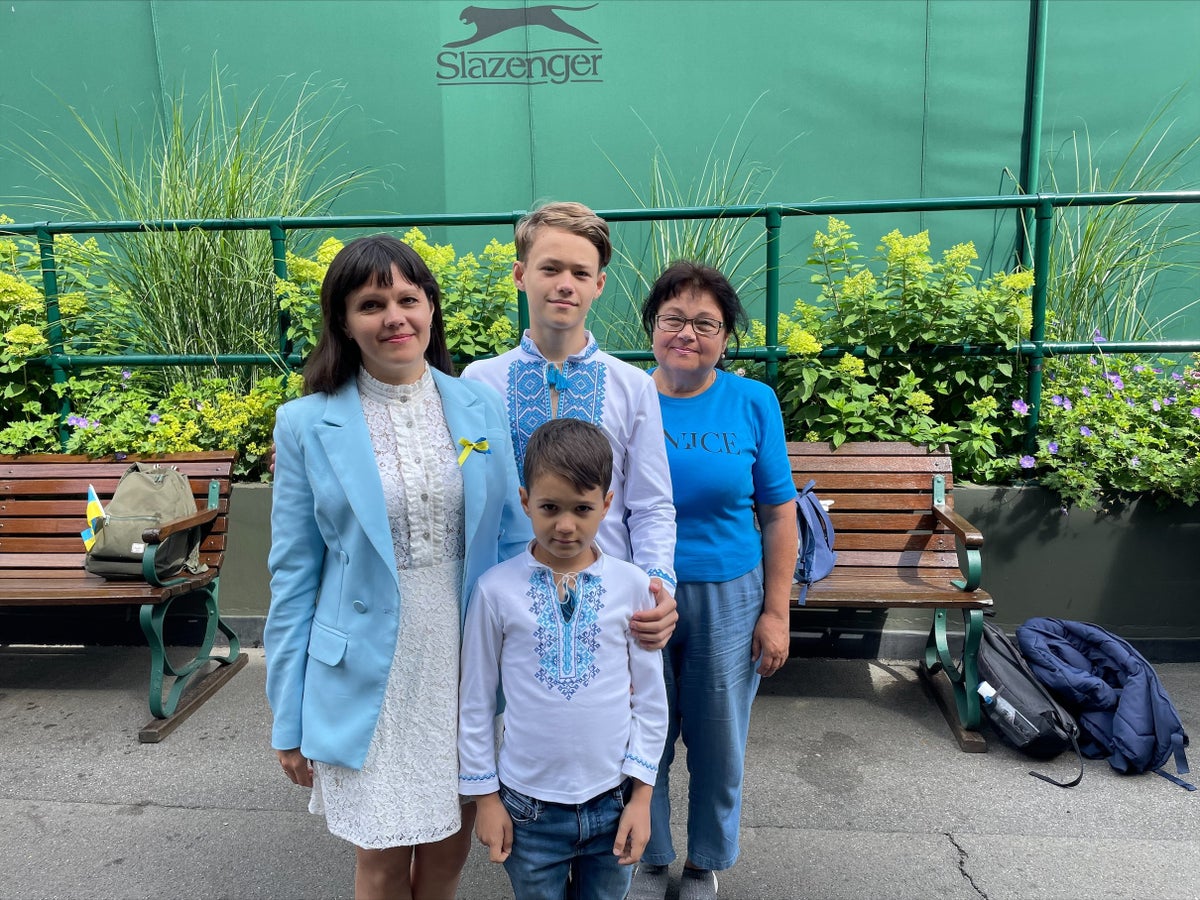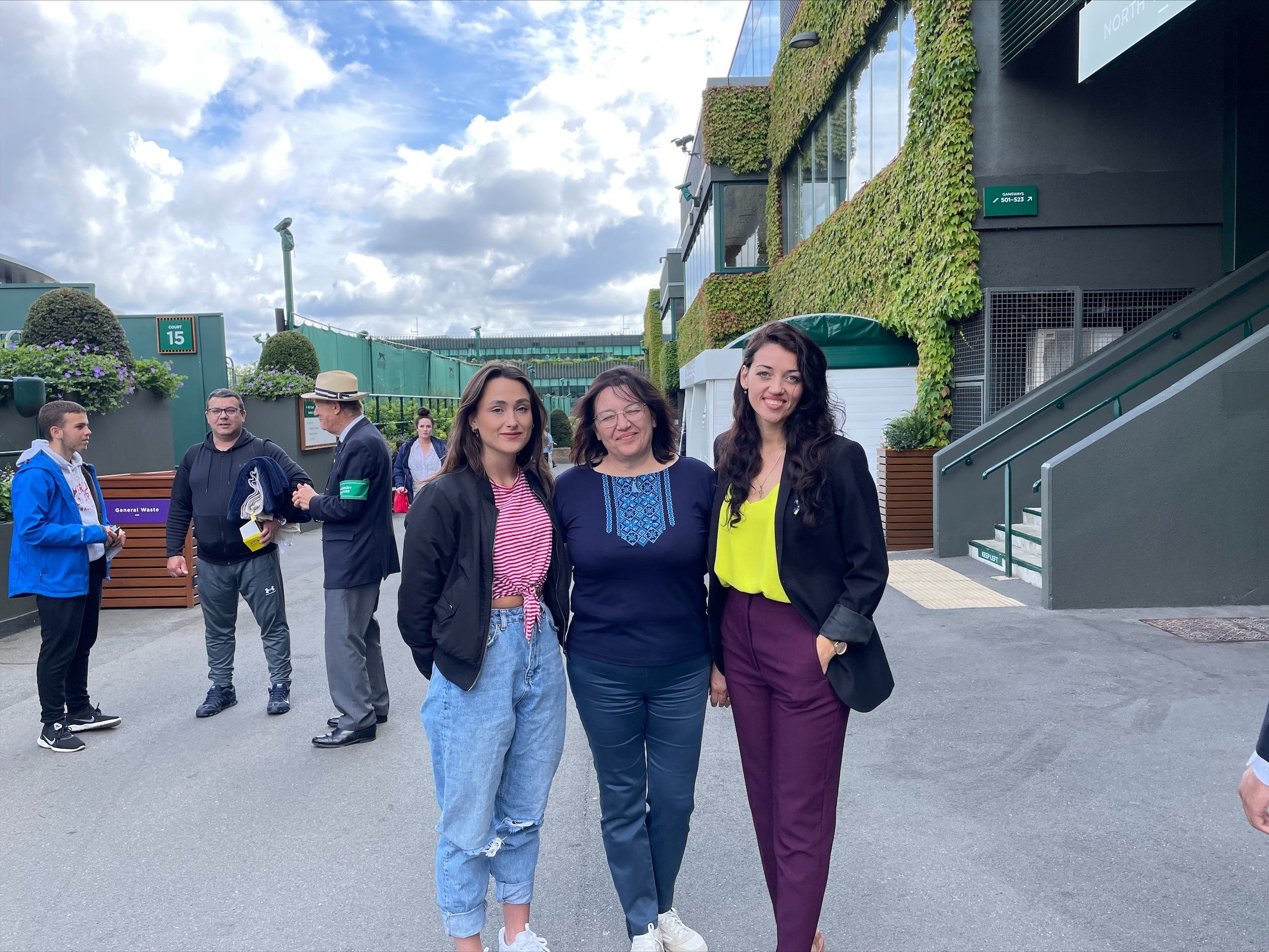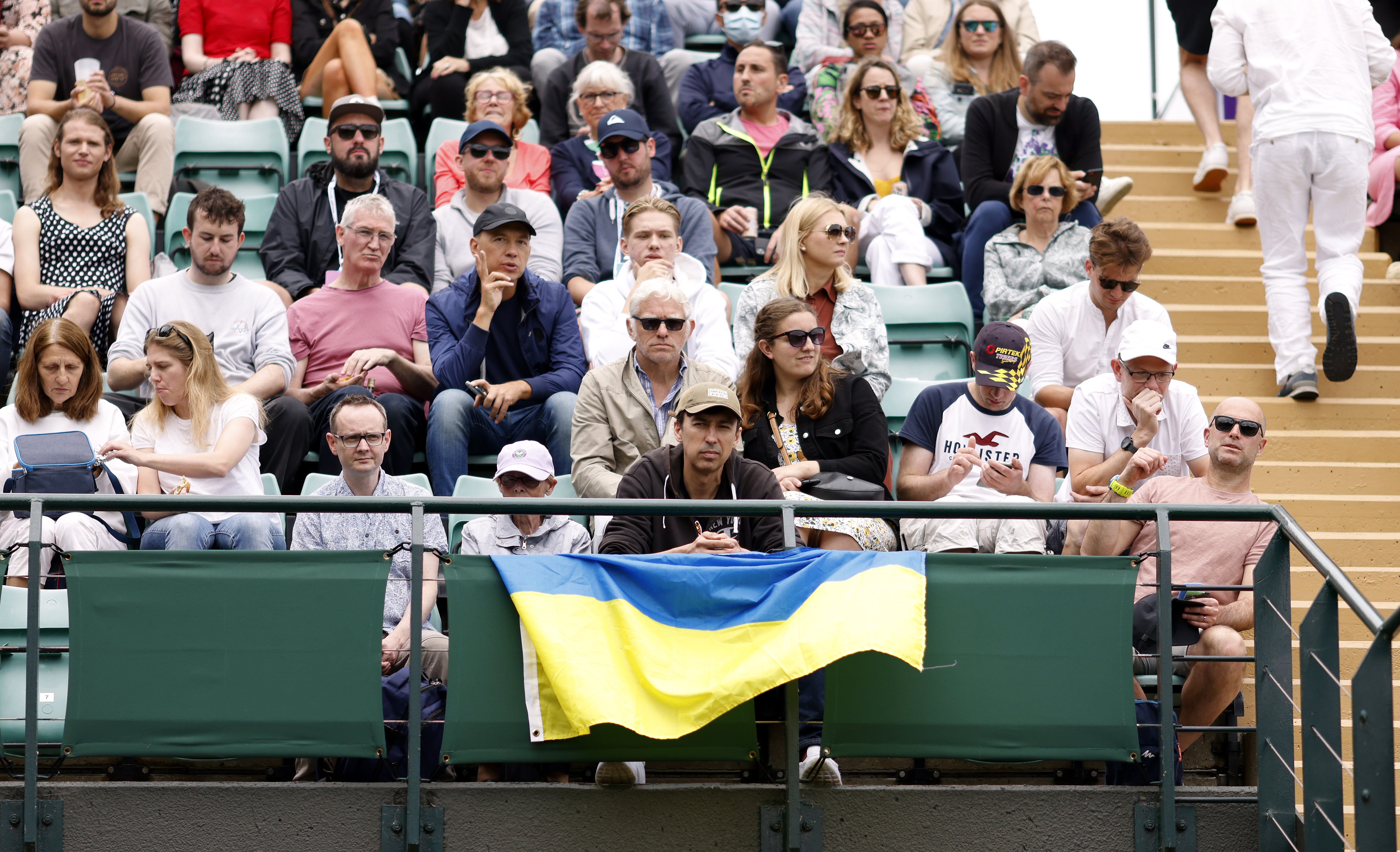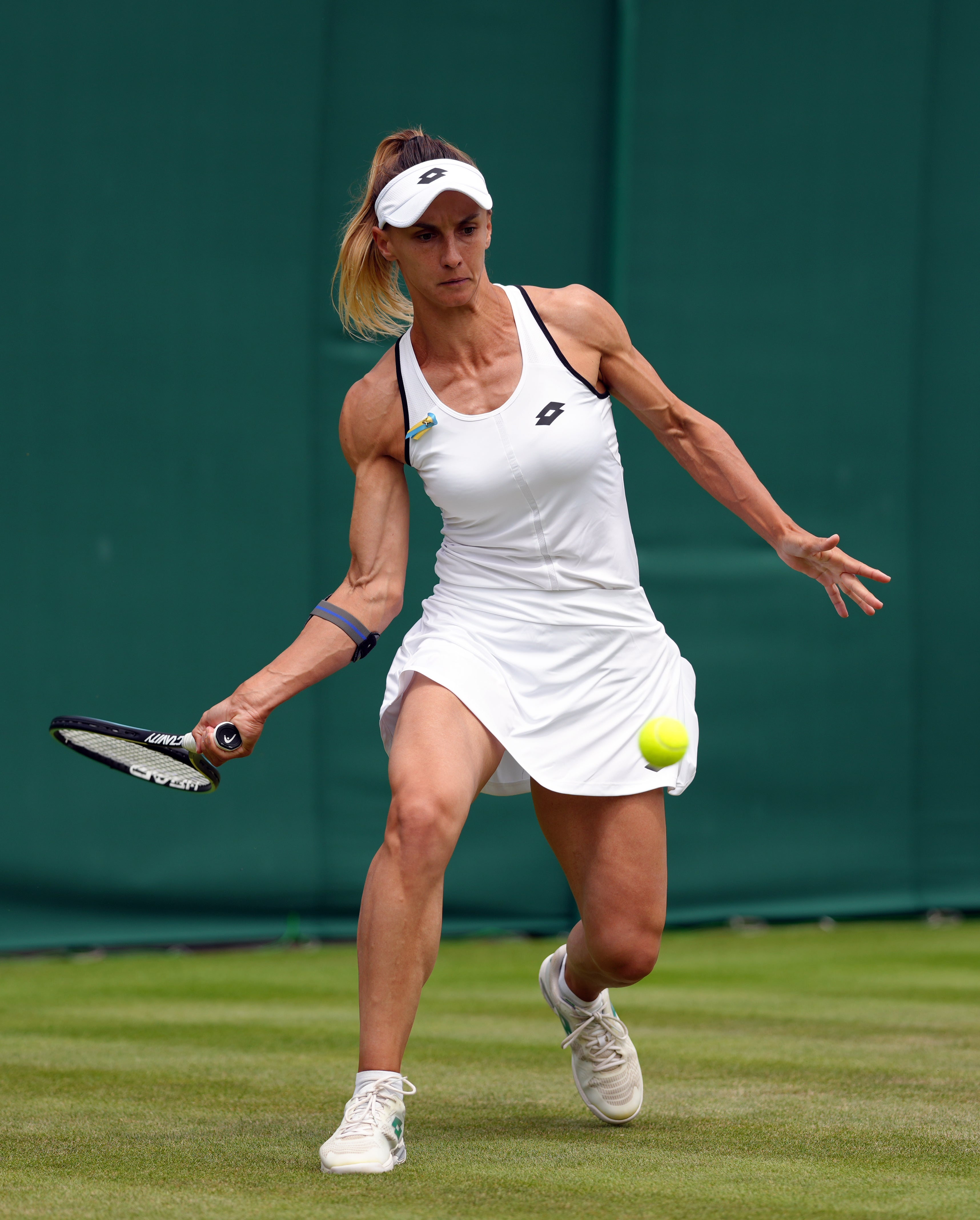
Ukrainian refugees given free tickets to Wimbledon have described it as a chance to escape from the horrors of the war.
One thousand asylum seekers from the country visited the Championships on Middle Sunday, and the first families through the gates of the All England Club in SW19 expressed their gratitude.
Seven refugees from two families, all wearing their country’s colours, said they were missing their boyfriends, husbands and fathers in Ukraine, but that supportive events like Wimbledon gave them the “power” to stay strong.
It’s moments like this, at Wimbledon today, that we feel the support— Ukrainian refugee Kateryna Shyian
Kateryna Shyian, 32, fled her home in Zaporizhzhia in south-eastern Ukraine with her sister, Yuliia, 24, and their mother, Nina, 59, to a host family home in Mitcham, south London.
She was forced to leave behind her boyfriend, and her father, who had stayed behind to be with his 84-year-old mother, whose reduced mobility meant she could not leave.
Ms Shyian, who has been working as an asset manager at The Rubens luxury hotel in central London, said her father, Mykola, 63, is a tennis fan and she would be thinking of him as she watched on the action on Court No 1.

She told the PA news agency: “I’m very excited about this tennis tournament because my father, he loves it all, and he is always watching on TV, so I feel in touch with it.
“Unfortunately he’s in occupied territory, so now this Championship he will pass.
“It’s really scary because for more than one month we have not had any connection with him.
“But we were saying that in Ukraine, we’re not crying, we’re fighting.”
She said that being at a prestigious tournament while worrying about her family feels like “living two lives”, but the invitation had made her “feel the support” from the UK.

“It’s a really great, big Championship, and it really helps you find the power to help in other ways,” she said.
“For example, all my family now are finding ways to volunteer and support Ukraine, helping people find out how to make documents to come here.
“It’s moments like this, at Wimbledon today, that we feel the support as well.”
She added: “I feel like I’m living two lives.
“On one side, it’s normal life, and the other side is the war, hearing about the rockets and the dangers.”
She said it is “good” that Russian and Belarussian players have been banned from the tournament this year.
Ms Shyian last saw her boyfriend on February 24, and calls him every day.
“I wish I could hug him and feel better,” she said.
Due to this opportunity we can think about something interesting and also not about news from Ukraine— Ukrainian refugee Kateryna Sokol
Kateryna Sokol, a 40-year-old interpreter and English teacher, was at SW19 with her sons, Ivan, 13, and Anton, seven, and her mother, Zinaida, 64.
She had to leave behind her husband, a food factory worker, when they fled Kostiantynivka, in the eastern Donbas region.
Ms Sokol told PA: “We are very glad to be here. We appreciate the amazing opportunity to attend such an amazing event and to be a part of a worldwide tennis competition.
“Due to this opportunity we can think about something interesting and also not about news from Ukraine.”

Speaking about her husband, she said: “We talk every day, I phone him, but it’s difficult for me and for my sons to live in different parts of the world.”
She said Ukrainian players like Lesia Tsurenko wearing blue and yellow badges is “very important” because “people all over the world and especially the United Kingdom will see”.
Her son, Ivan, said he enjoys sport, especially ballroom dancing, which he has been able to continue at Wimbledon Dance Academy, and was “very excited” to be at the tournament.







